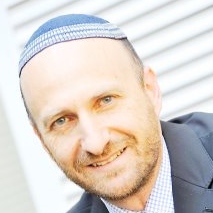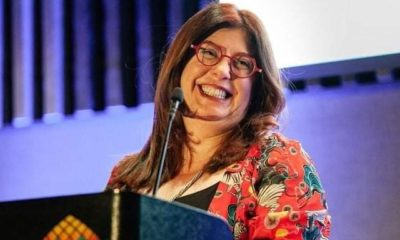
Voices

Peaceful debate on Israel a nice change
One of the few rays of light in a very bleak year was how in 2020, no fewer than four countries – the United Arab Emirates (UAE), Bahrain, Sudan, and Morocco – decided to normalise relations with Israel, a country they had been reflexively hostile towards ever since its establishment.
These breakthroughs were widely acclaimed as heralding a new era of peace, reconciliation, and co-operation, not just for Israel and its neighbours but for the region as a whole. Since then, there has been a flurry of activity between the various countries, from the diplomatic sphere to trade, tourism, and cultural exchanges.
The significance of the agreements – aptly named the Abraham Accords – was the subject of a webinar titled, “A new Arab-Israeli Peace and 27 Years of South Africa’s Reconciliation: Lessons Learnt” held on Monday, 8 March. The event (https://youtu.be/RKuWy85rcdI) was co-organised by the South African Jewish Board of Deputies and Sharaka, a nongovernmental organisation recently established with the aim of bringing together Israeli Arabs, Jews, Bahrainis, and Emiratis. Participants included a diverse range of social activists and pundits from Israel, the UAE, Bahrain, and South Africa.
One of the points that surfaced frequently was that peace and reconciliation cannot be left solely to politicians; ordinary people on the ground also have a duty and the ability to make a difference. Outside of the public eye, there are indeed a range of organisations in Israel that are quietly working to build bridges of friendship and understanding between Jews and Palestinians, as well as between Israel’s many diverse ethnic and religious communities. As Gabi Farber, former chairperson of the South African Union of Jewish Students at the University of the Witwatersrand and a current member of the student representative council pointed out, true unity between people doesn’t mean that they must all be the same, but is achieved through respecting and, indeed, valuing the differences between them. One need not agree with the other person’s narrative, but one should always be open to hearing and understanding where they are coming from.
Amjad Taha, an investigative journalist and a strategic advisor in Bahrain and the UAE, further stressed that in planning for the future, people couldn’t become prisoners of the past, nor could the future of the Middle East be held hostage to anyone else’s cause. For too long, the unresolved Israel-Palestine issue had prevented various Arab states from making peace and establishing relations with Israel, he said, even though this would be beneficial not just to themselves but the region in general. Today, however, there was a growing groundswell of support for peaceful coexistence and a corresponding decline in support for the actions of Palestinian militants.
It was heartening to hear the issues relating to Israel and its relationship with its neighbours being debated in such a positive, mutually respectful spirit. As we know, such exchanges are all too often characterised by crude invective and finger pointing. One came away from it feeling that for all the obstacles that lie ahead, a shared commitment to the values of peace, empathy, and mutual respect can indeed usher in a hopeful new era for all inhabitants of the region.
- Listen to Charisse Zeifert on Jewish Board Talk, 101.9 ChaiFM, every Friday from 12:00 to 13:00.








